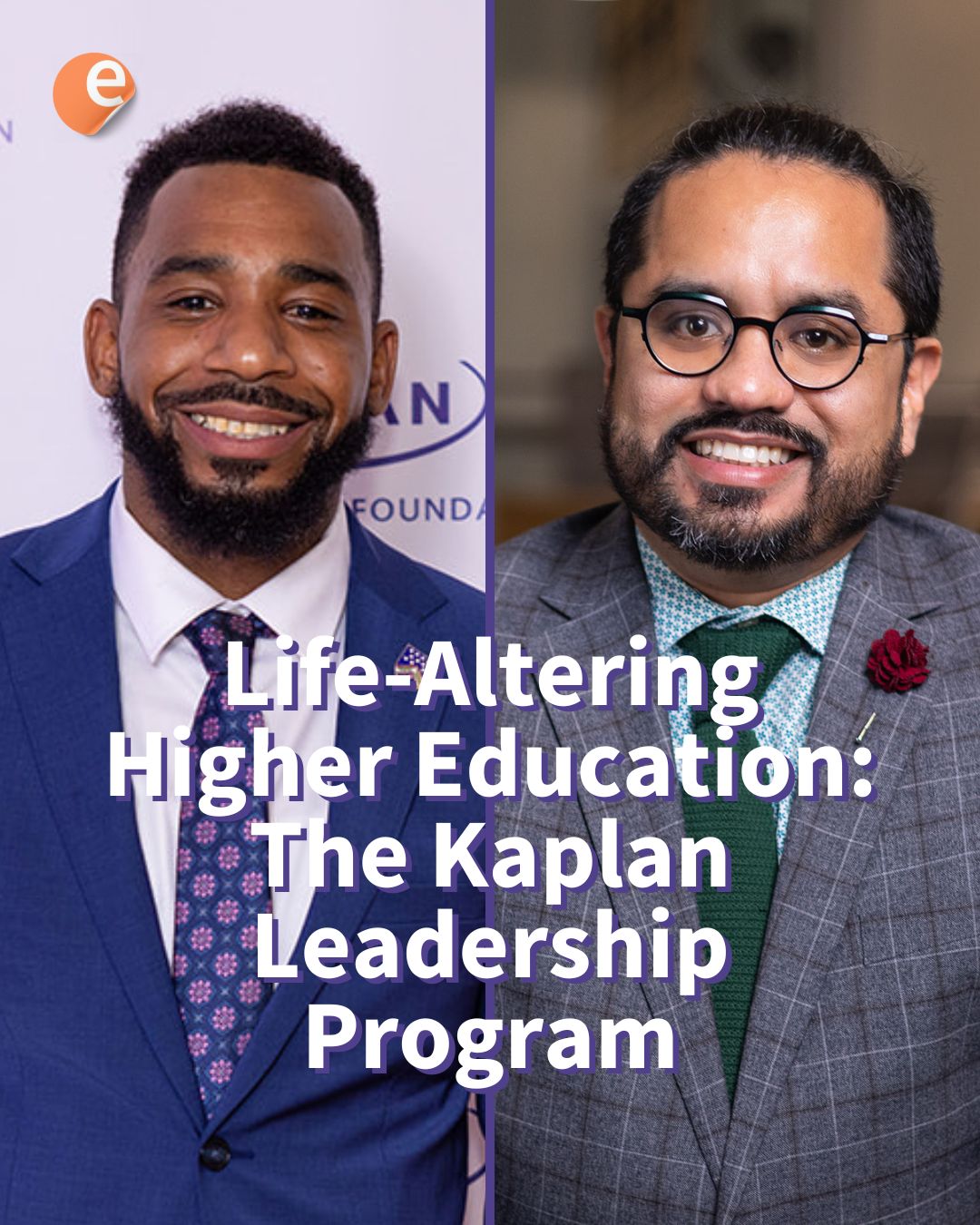Felix Ohswald is the co-founder and CEO of GoStudent, the Vienna-headquartered digital learning platform providing tailored, 1:1, video-based tuition to K-12 students. Felix holds two degrees in Mathematics and a master’s degree in Quantitative Finance. Felix is also a founding member of the EdTech Founders Club, a community dedicated to supporting individuals within the EdTech space.
In June 2021, GoStudent became Europe’s first EdTech unicorn, reaching a valuation of $1.7B. Amidst the shake-up in the EdTech Unicorn rankings following China’s ruling CCP and its effort to “reign” on the online tutoring business, the prospects for companies like Yuanfudao, Zuoyebang and VIPKid, topping the global EdTech unicorn ranks, became uncertain. But the validity of the online tutoring model, however, is nothing but promising.
Felix provided his thoughts on a written interview with LMSPulse, where he shared his origin story, what makes online tutoring so valuable today, and the key role it’s set to play in the global eLearning ecosystem going forward.
GoStudent: The future of online tutoring?
Could you give us a little background about GoStudent? What you do, and how did you get started?
Felix Ohswald: Of course! GoStudent is a platform for online teaching. We are the future of tutoring. Via our platform, we provide 1:1 video-based tuition. Aimed at K-12 students, we offer courses from core subjects including English, Maths and Science; all the way to specialist tuition for those studying the likes of Latin, Law or Accounting.
During each lesson, students and tutors interact live in a virtual classroom, with features like a whiteboard, screen sharing and the ability to edit documents together.
Since our goal is to facilitate long-lasting academic growth, we made the decision early on to offer a minimum paid membership period of six months. We want to help shape each child’s future by pairing them with a tutor that suits their specific needs, and that will help them to grow. Consistent, long-term support is key to achieving this.
GoStudent is operational in 22 countries, with offices in 18 locations. We work with more than 7,000 tutors and employ 900 talented individuals.
This past June, GoStudent became Europe’s first EdTech unicorn, reaching a valuation of $1.7B USD thanks to stakes from big players like Softbank and Tencent.
About me and my background: I’ve always been passionate about education — I love mathematics especially. My grandfather was the most inspiring teacher and, from a young age, he nurtured my curiosity about numbers. He wouldn’t just explain things to me, he would frame his teachings in a real life context. It made abstract topics feel tangible and exciting.
It was in 2015 when I realised the true need for far more teachers like my grandfather. My younger brother, Moritz, began referring his classmates to me for help with their maths homework. I was happy to help, and word spread. I was quickly surprised by just how many students were reaching out to me. It seemed as though they all lacked support and had lost enthusiasm for the subject. I knew that this was an enormous issue, and I wanted to find a way to address this.
I got in touch with my friend, Gregor Müller. Together we discussed creating a dedicated homework support app, where users could be connected with motivated and inspiring tutors and would receive high-quality support. Following our conversations, GoStudent launched in 2016, with the app released that summer. Gregor became GoStudent’s co-founder and COO.
What started as a homework chat app evolved into a 1:1 tutoring platform, where students could receive tailored support on live video. In taking tutoring online and pairing students with the very best teacher for them, regardless of geographical location, we believe that we are helping to truly unlock their potential.
Online Tutoring to save the world
Why do you think the online tutoring model like yours is important today?
There’s no doubt that education is the key to reducing wealth inequality. In order to achieve this, we need more innovation in the space to improve the accessibility of high-quality education. Meanwhile, one of the biggest disruptions happening right now in the elearning space is taking the very best teachers out there, and enable them to make online lessons much more effective than they are today. The online tutoring model is important because it has made us more open to the idea of high-quality, video-based lessons in the future.
When I think about the school of tomorrow, the best teacher in the world could teach via video broadcast to multiple classrooms across the globe. In these classrooms, there would be a pedagogically trained supervisor who oversees the learning environment, supervises the children, and offers additional assistance, while the lesson is being taught by a pro at the very top of their field. This way, every child can be taught by the best teacher, irrespective of things like location or socioeconomic status.
To me, video-based tutoring means children can have a real opportunity to learn from the very best tutor available to them. Online tutoring removes geographical restrictions and allows students to be paired with the tutor that best suits their learning needs. A mindful pairing allows for a more effective student-tutor relationship, one that unlock the student’s full potential.
Up until now, students have been limited by the tutors that are local to them. With the GoStudent model, this no longer needs to be the case.
What opportunities are there for companies and entrepreneurs like yours, as well as parents or even institutions in relation to the online tutoring space?
The sudden need for widespread homeschooling during the coronavirus pandemic was the biggest experiment on digital education ever conducted in education’s history. Crucially, it showed the need for good solutions, solid ideas that work for schools, students, teachers and parents.
This represents a huge opportunity to those currently working in the EdTech space, and those looking to enter it. During the past year and a half, we have learnt which existing services and models work, and which are lacking. We are now in a position to speak to those who learned and taught at home during the pandemic, and hear from them what they would want and need.
For us, as a one-to-one online tutoring service, the pandemic actually led to an initial decrease in interest. With global lockdowns hitting in early 2020, we found that the search volume for tutoring plummeted during the spring lockdown. Because of this, we had to completely reposition ourselves and rethink how we approached customers. Due to school closures and cancelled exams, parents were not searching for tutoring providers.
The pandemic, however, was certainly an accelerator for awareness and trust regarding online solutions. This has led to a sizable change in attitude, which was followed by an uptick in interest once the initial disruptions had passed. The online tutoring format
In March 2020, we were working with less than 1,000 tutors. Nowadays we are working with 7,000. Our base team has expanded rapidly too. Since the start of the pandemic to now, we have grown from 40 people to more than 900, and we are operational in 22 countries.
When it comes to benefits for parents, one of the biggest ones the online learning model offers is the flexibility. Parents don’t need to worry about travel and other logistics, lessons can easily be rescheduled, and they or their children can choose and keep their favorite tutors. This is possible than to the access GoStudent offers to a global talent pool. In summary, parents get peace of mind by choosing a service that will work for them sustainably and that will help students reach their full potential, veritably.
Future challenges in eLearning, and how Online Tutoring fits into the ecosystem
What are some key challenges for online tutoring, both general and specific to eLearning?
As with all technology, a common roadblock is connectivity, often caused by wealth inequality. Trust in online solutions can also be a challenge among some groups, who are reluctant to accept that online learning can be as effective as in-person teaching. Before the pandemic, 30% of parents were put off our service due to it being online only. While this reticence has reduced significantly, we see that there are still parents that are not “ready” to embrace online education offerings.
What is the role that technology plays in making sure the tutor-learner relationship is valuable and effective?
Technology opens so many doors. It allows us to really enhance our services. One area of technology that we are experimenting with is the use of AI in lessons. With consent from our participants, we have been using intelligent emotion tracking tools to measure 32 points on the face in order to analyse emotions in students and tutors, during lessons. Our goal is to better understand which emotions are most common in the classroom, how they correlate between different tutor and student pairings, and to understand which emotional connections are most beneficial for a successful and mutually productive learning environment.
Our ultimate aim is to use this data to improve our overall offering and, perhaps in time, help improve the global education sector more broadly. With the knowledge gained, we can make the tutor selection process even more accurate and continuously improve the recruitment process. Further, we can use these findings for training purposes, to help our tutors increase their emotional intelligence and better understand the role that emotions play in the learning process.
We are aware that currently, daily interactions with tutors and students show that they can often only distinguish between “happy” and “unhappy” on a subjective level. The use of AI can help us look at sentiments in a more measurable way. As we learn more about the diversity of emotions and their dimensions, we will one day be able to identify which distribution or combination of emotions are most likely to lead to long-term academic success.
What are your views on partnerships with edtech or elearning companies or organizations? How critical are partnerships in GoStudent’s strategy?
We see great potential in both acquiring and partnering with other EdTech companies, and we intend to use our most recent funding round to explore this. We are making hires specifically to be able to explore these avenues. While this is still a very new area for us, it is one that we see as incredibly important for the future of GoStudent.
What are some developments to look forward to in the coming months, for GoStudent and the online tutoring space? Who are you paying attention to?
There are great digital international education companies out there that want to disrupt the traditional offline space and the traditional players. When looking at the landscape, I find that the EdTech scene in Asia is much more developed than in Europe. This is somewhere we can draw a lot of inspiration from.







